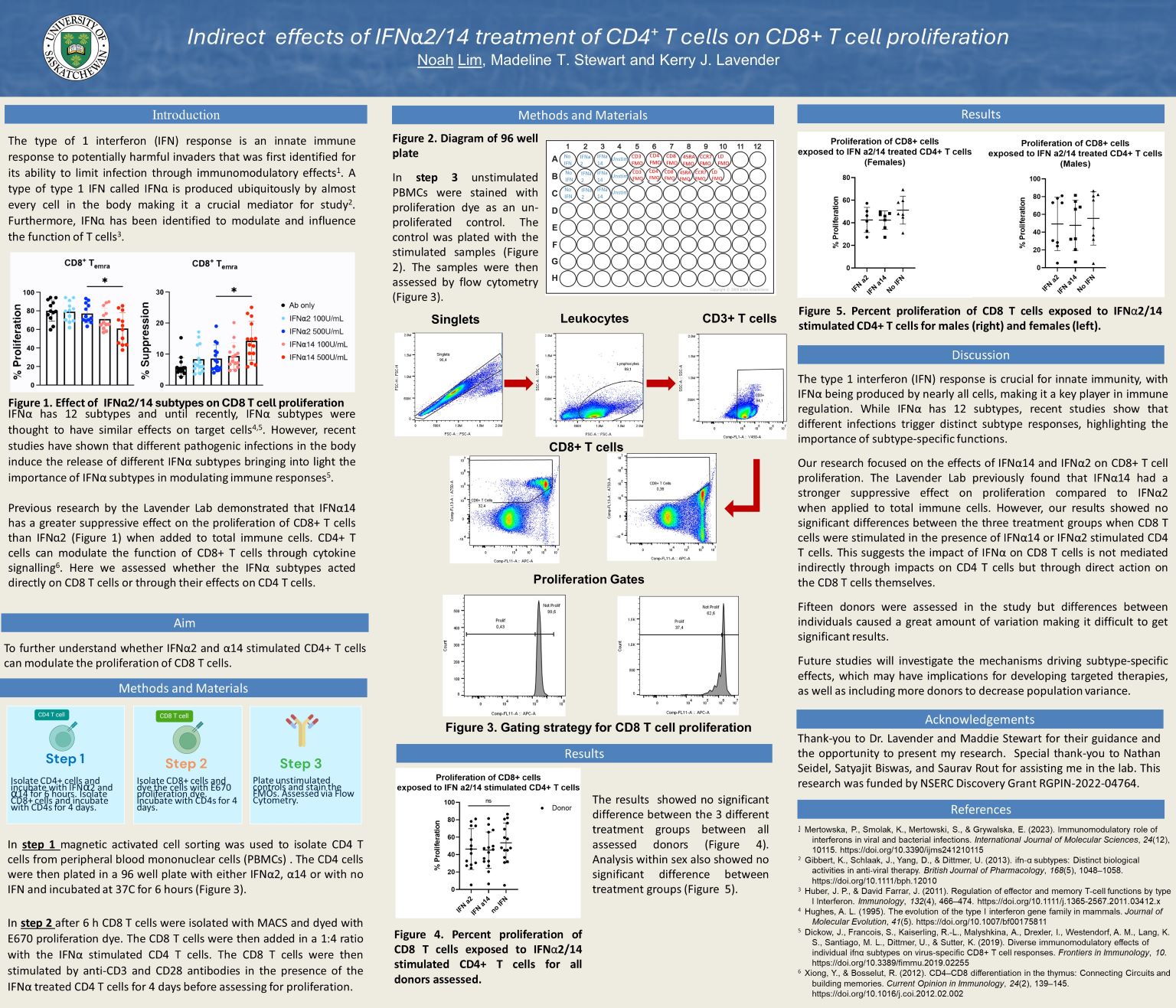
Indirect effects of IFNα2/14 treatment of CD4+ T cells on CD8+ T cell proliferation
Noah Lim
The type 1 interferon (IFN) response is a critical component of innate immunity, with the ability to regulate immune functions and restrict infections. IFNα, a subtype of type 1 IFN, is produced ubiquitously by most cells, making it essential for immune response studies. IFNα consists of 12 subtypes, previously thought to have similar effects on target cells. However, recent findings reveal different infections induce the release of distinct IFNα subtypes, emphasizing the significance of subtype-specific immune modulation. This research investigates the effects of IFNα14 and IFNα2 on CD8+ T cell proliferation. Previous studies by the Lavender Lab indicated that IFNα14 had a more potent suppressive effect on CD8+ T cell proliferation than IFNα2 in total immune cells. Our study assessed whether these effects were mediated directly on CD8+ T cells or indirectly through CD4+ T cells by further isolating CD8+/CD4+ T cells from total immune cells. Using flow cytometry, results showed no significant differences in the treatment groups, suggesting IFNα's effects on CD8+ T cells are not mediated through CD4+ T cells. Variations between individual donors contributed to variability in the data, preventing statistical significance. Future research will explore mechanisms driving subtype-specific effects with potential implications for targeted therapeutic development.
